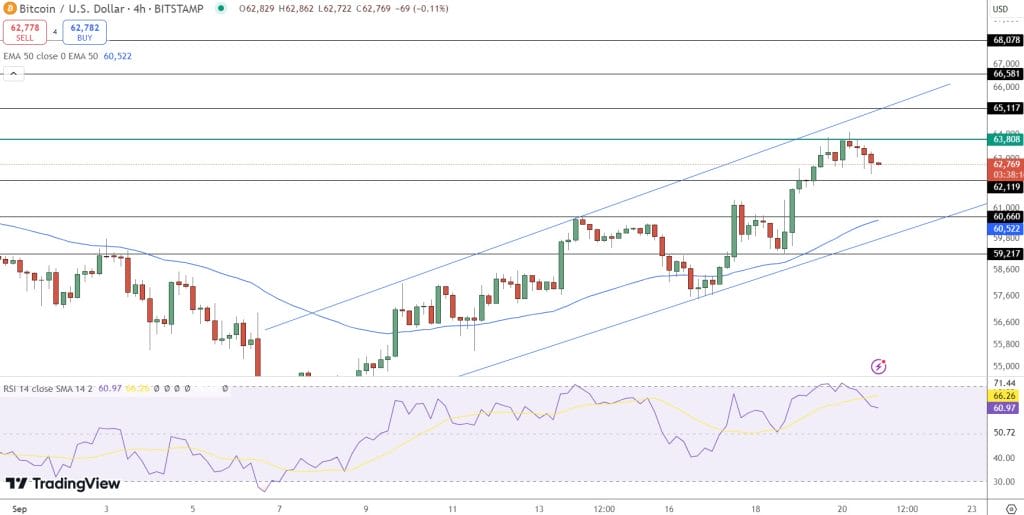Last updated:
 Why Trust Cryptonews
Why Trust Cryptonews
Key Takeaways:
- A new card connects crypto payments with daily commerce, easing the shift between digital funds and traditional money.
- Built on a Solana-based protocol, it simplifies activation and everyday use.
- The model bypasses standard ID checks to protect user data.
- It joins a growing trend of merging digital finance with conventional payment methods.
Zebec Network, a payments protocol based on Solana, rolled out its crypto debit card, Zebec Carbon, on March 27 through a collaboration with Mastercard.
The new offering seeks to connect cryptocurrencies and traditional finance by enabling seamless spending of digital assets anywhere Mastercard is accepted.
Its features include instant activation, zero fees, complete privacy, and compatibility with Apple Pay and Google Pay.
Unlike traditional bank-linked debit cards, Zebec Carbon is funded with stablecoins such as USDC, which are converted into fiat at a 1:1 ratio at the time of payment.
The card has a limit of $1,000 per transaction and a maximum daily spending cap of $10,000.
The product is also touted for its privacy-first approach, ensuring that users’ spending activity remains undisclosed.
For U.S. residents, there’s no ID verification required—approval is instant, which lowers the barrier for getting started.
With this launch, Zebec joins the growing movement of crypto platforms integrating digital assets into everyday transactions.
However, it is not the first player in the market to introduce such a product.
Several major crypto firms, including MetaMask and Floki, have launched similar debit cards in recent months.
MetaMask and the Evolution of Crypto Debit Card
MetaMask, best known for its self-custodial crypto wallet, began testing its crypto debit card in the U.S. back in December 2024.
The card works both online and in stores, converting crypto to fiat right at checkout.
The MetaMask Card is already available in several countries, including the EU, the UK, Brazil, Mexico, and Colombia, and there are plans for further expansion.
Users can also link their digital wallets to Apple Pay or Google Pay, making it easier to incorporate crypto payments into everyday spending habits.
The card runs on the Linea network and supports USDC, USDT, and WETH.
Floki and Avalanche Join the Debit Card Race
Floki entered the debit card game around the same time, offering users a way to spend a wide range of cryptocurrencies like Bitcoin, Ethereum, USDC, and its native Floki token across various blockchains.
The card is available in both digital and physical versions. The virtual card costs 10 euros, while the physical one goes for 32 euros plus shipping. There’s a 2% fee when topping up, but no charges for transactions or currency exchange.
Floki also introduced global-use virtual gift cards for added flexibility.
Meanwhile, Avalanche released its own crypto debit card under Visa.
It first became available in Latin America and the Caribbean and includes features like custom PINs, spending alerts, and self-custody controls.
The Future of Crypto Payments with Mastercard
In addition to these individual crypto card launches, Mastercard itself has also been making moves in the blockchain space.
The company recently integrated its Multi-Token Network (MTN) with J.P. Morgan’s Kinexys Digital Payments platform to facilitate cross-border blockchain transactions.
This collaboration looks to enhance the transparency and speed of global payments, reduce settlement times, and address operational inefficiencies in international transactions.
With more companies stepping into crypto payments, the lines between traditional banking and digital assets continue to blur.
The Zebec Network’s new card is just the latest sign that spending crypto like cash is moving from idea to everyday reality.
Frequently Asked Questions (FAQs)
How might Zebec Carbon’s design affect daily crypto spending?
What challenges could arise with integrating crypto into routine transactions?
How does Zebec Carbon’s privacy approach differ from traditional payment cards?


